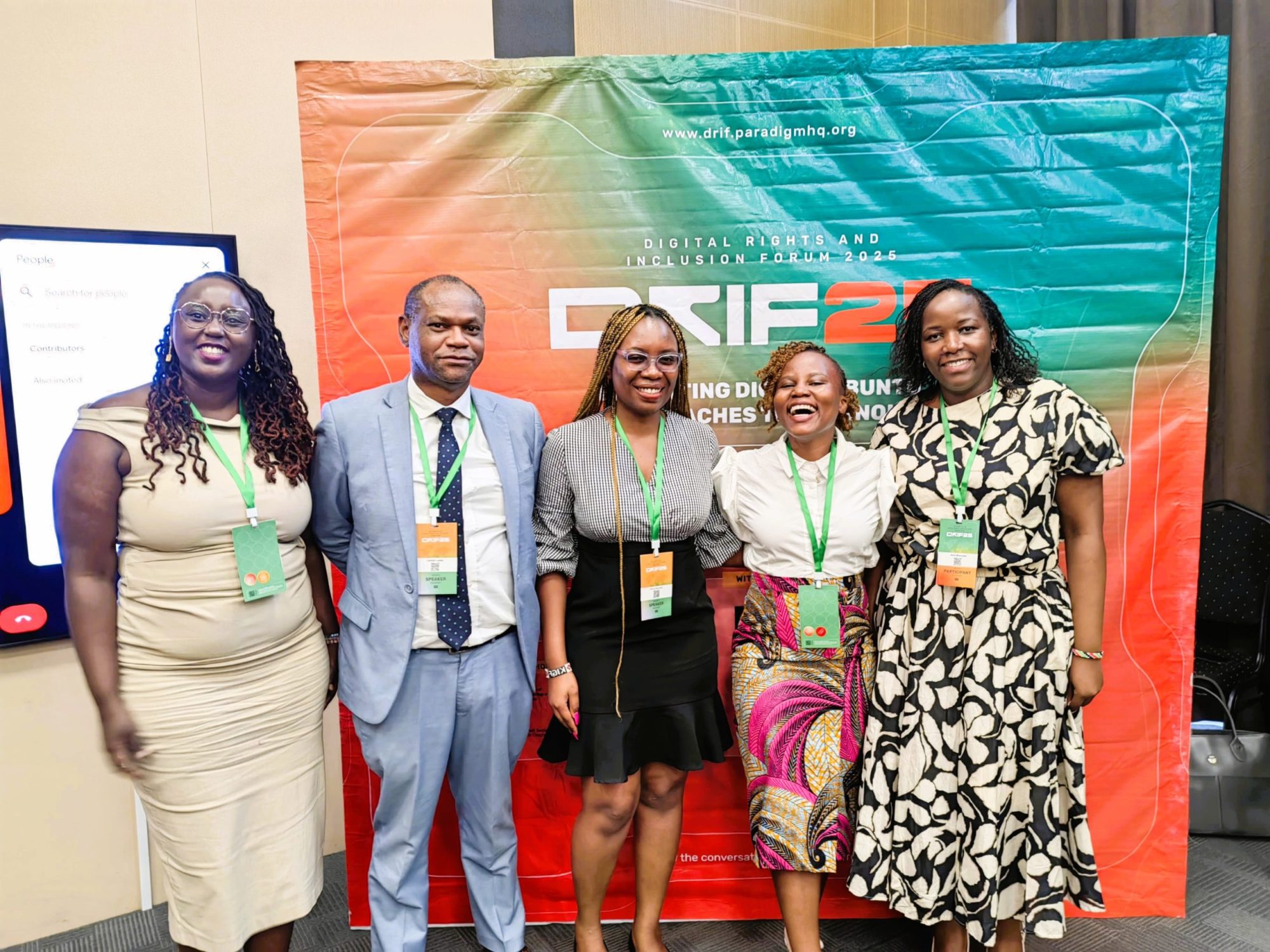KICTANet is at this year’s Digital Rights and Inclusion Forum (DRIF) in Lusaka, Zambia, where the theme, Promoting Digital Ubuntu in Approaches to Technology, has set the stage for critical discussions. The forum brings together governments, civil society, activists, academics, technologists, and private sector players to tackle global challenges in digital rights and inclusion. It’s a key platform shaping digital policy conversations across the global majority.
Cherie Oyier, KICTANet’s Women’s Digital Rights Programme Lead, hosted a panel on implementing the African Union Data Policy Framework (AUDPF). She was joined by the Zambia data protection commissioner Likando Luywa, Catherine Muya (GIZ), Irene Mwendwa (Pollicy) and Diana Kemunto (Association of Privacy Lawyers in Africa)
Strengthening Data Governance: Challenges and Strategic Approaches
Africa’s journey towards effective data governance has seen progress, but hurdles remain. Commissioner Likando Luywa unpacked Zambia’s Data Protection Act (2021), a prime example of national efforts to secure personal data. Meanwhile, the AUDPF aims to harmonise cross-border data sharing, boost digital ID systems, and fuel intra-African trade.
The session highlighted hurdles that Africa faces such as legislative disharmony, limited public awareness about data rights and informed consent, and cultural barriers that impede widespread adoption of data protection norms. To tackle these, the African Union (AU) has rolled out needs-based support programmes, helping governments craft tailored data policies, build institutional capacity, and drive domestic implementation. The focus is on state-led initiatives, ensuring alignment with national priorities, while using the AUDPF as a guiding standard.
Capacity-building through workshops, advocacy, and identifying government “champions” is key to fostering responsible data use. Another critical pillar highlighted is community engagement. Involving African innovators, especially women, early in policy design ensures inclusivity. There was a proposal for a Data Governance Day to raise awareness and celebrate progress continent-wide.
The panel also flagged financial sustainability as a major concern. To reduce reliance on unpredictable external funding, innovative financing models and long-term investment strategies are needed.
Collaborative Governance for Sustainable Development
Beyond data governance, the discussion highlighted how partnerships can drive sustainable development. Strengthening ties between regional economic communities and existing networks enables knowledge-sharing and resource pooling. The African Union Development Agency plays a crucial role here, ensuring technical implementation stays Africa-led.
This collaborative model prioritises dialogue over conflict, bringing together civil society, governments, and experts to shape progressive policies. Cross-border learning platforms are vital for overcoming economic and community challenges.
Capacity-building in data governance supports sustainable development by improving monitoring, accountability, and evidence-based policymaking. Targeted training and advocacy can boost participation from academia, institutions, and government allies, strengthening the entire ecosystem.
Recommendations and the Road Ahead
The panel closed with actionable takeaways:
- Harmonise cross-border data policies to create a unified African data market.
- Invest in public awareness campaigns on data rights and ethical governance.
- Include diverse voices, especially marginalised groups, in policy development.
- Develop sustainable funding models for long-term data governance.
- Expand collaboration between regional bodies, civil society, and governments.
- Centre the African expertise in technical solutions and capacity-building
Looking ahead, KICTANet’s inaugural flagship Africa Tech Policy Summit that will be held in Nairobi between May 12th and 16the offers a chance to advance these discussions, forge partnerships, and push sustainable development through stronger data governance.
![]()





Thanks so much KICTANet.
We have learned so many things from you. You are wonderful people to our society
Kudos from Busia county